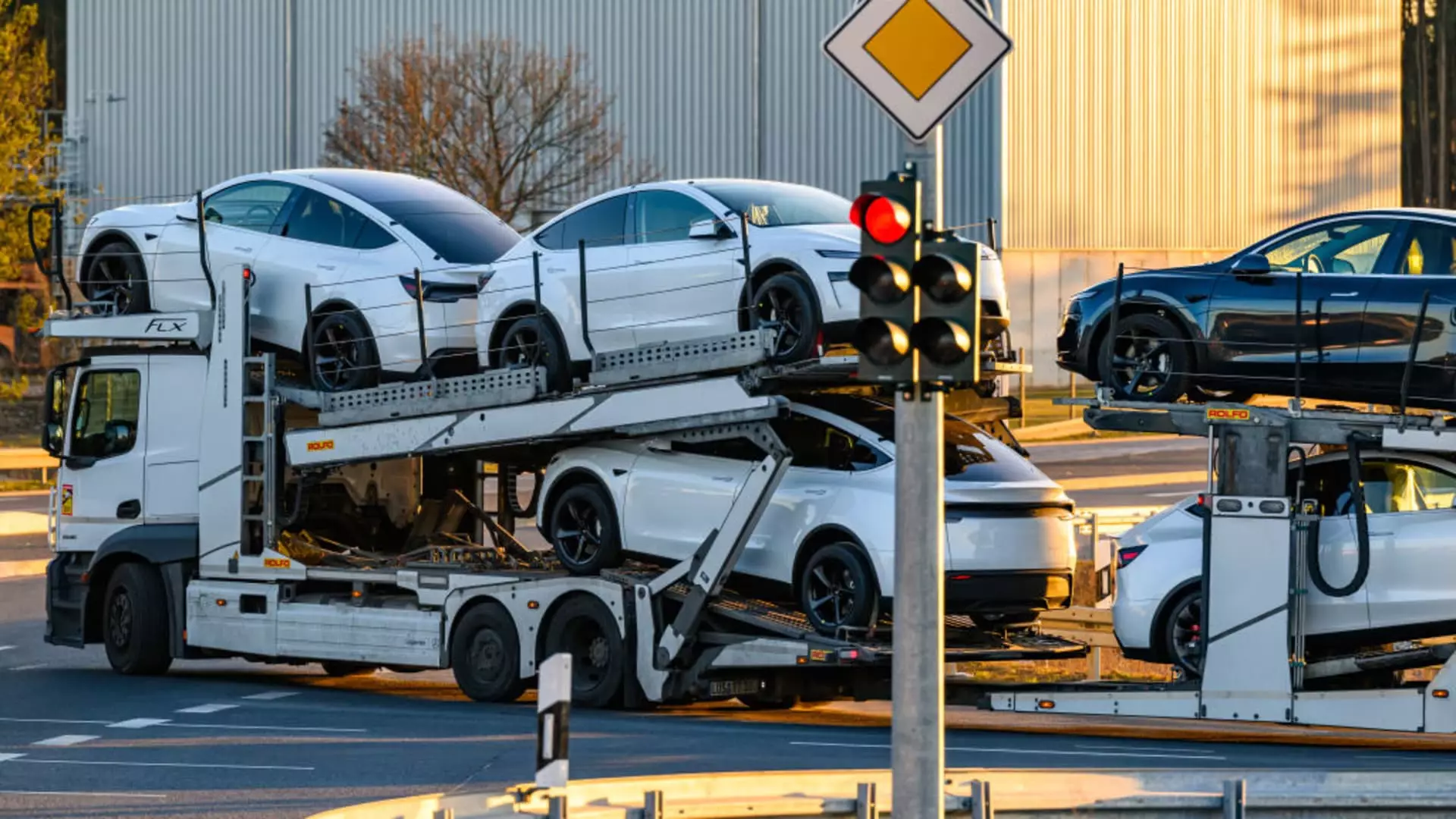With a staggering 336,681 vehicle deliveries reported for the first quarter of 2025, Tesla finds itself navigating through a stormy market climate, marked by a 13% decrease from the previous year. The figures are not just a reflection of the company’s operational challenges but also a window into the broader implications of leadership choices and market competition that threaten to redefine its position in the electric vehicle (EV) sector.
Stock Market Reactions: Investors’ Jitters
Tesla’s stock, after finishing its worst quarter since 2022, exhibited a momentary rebound of nearly 4%, signaling the volatility and uncertainty that surround the company. Investor confidence appears shaky. Just two days after releasing disappointing delivery numbers that fell short of expectations, CEO Elon Musk’s reported potential departure from the Department of Government Efficiency left many speculating about Tesla’s strategic direction. Many had anticipated deliveries to hit between 360,000 and 370,000 units, but the reality was a stark contrast, revealing a growing disconnect between projected confidence and actual performance.
Musk’s gamble to reinvest his energies into political shadows through government roles may be costing Tesla dearly. According to Wedbush analyst Dan Ives, this moment could serve as a “fork in the road” for Tesla. His strong criticism labeled the situation a “disaster on every metric,” highlighting the urgent need for Tesla to confront its internal issues rather than gloss over them with rosy optimism.
Electrifying Competition: More Than Just Numbers
Another facet of Tesla’s troubles lies in the dramatically shifting landscape of the EV market. Tesla’s dominance is increasingly challenged as local and international competitors vie for attention and market share. Once holding an impressive 17.9% market share in Europe, that figure plunged to 9.3% in the first quarter of this year. This decline represents more than just slipping sales — it signals a crisis of confidence, resonating with consumers who now have viable alternatives.
The market penetration of companies like BYD in China has positioned them as formidable contenders, further complicating Tesla’s business strategy in a market already characterized by aggressive pricing and innovation. As Tesla grapples with quality control issues and evolving consumer sentiment, it becomes clear that innovation alone may not suffice; a reimagining of the customer experience and brand narrative is equally essential in regaining trust.
Brand Image Crisis: Political Backlash and Reputational Damage
Elon Musk’s political entanglements have turned into a double-edged sword for Tesla. His financial backing of former President Trump and active participation in governmental roles have not only drawn criticism but have also incited public protests, boycotts, and criminal activities against the brand. Such backlash has the potential to corrode Tesla’s image, transforming it from a beacon of innovation to a target of discontent for various activist movements.
Tesla’s decline in market perception is, therefore, as critical as its delivery figures. The erosion of consumer trust in the brand, particularly among progressives who may once have viewed Tesla as a leader in ethical manufacturing and environmental responsibility, is a significant hurdle. With Musk’s rhetoric and political affiliations now intricately woven into Tesla’s public identity, a realignment with its core values is essential to restore faith among disenchanted consumers.
The Road Ahead: A Call for Genuine Leadership
As the dust settles from these disappointing figures, the pressing question for Tesla remains: What next? The road ahead is not just paved with the promise of innovation; it demands authentic leadership that resonates with a broader audience. The challenges that Tesla faces shouldn’t merely be viewed through the lens of fiscal performance but rather as an opportunity for recalibration and introspection toward a more inclusive and diversified strategy.
Moreover, the pressure to adapt in a rapidly evolving market landscape signifies the urgency of collaboration and forward-thinking partnerships rather than political pursuits. If Tesla hopes to emerge from this turbulent phase and regain its previous momentum, it needs a robust commitment to refining its core purpose and values, all while ensuring a customer-first approach.
For Elon Musk and Tesla, the stakes are high; successfully navigating this complex intersection of social, political, and economic dynamics may define their legacy in the electric vehicle domain. With competitors gaining ground, and a shifting public sentiment at play, the need for Tesla to reestablish its narrative and commitment to innovation has never been more apparent.

